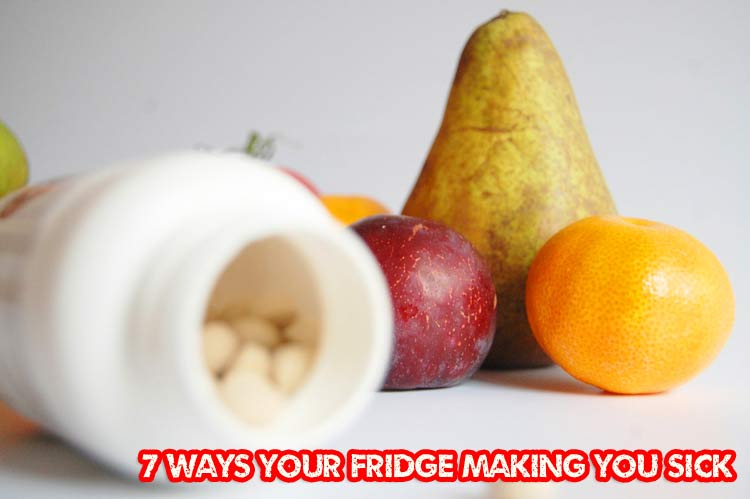
Aside from keeping your food cold and chilled, the main duty of a fridge is to prevent the growth of harmful bacteria in food. But according to studies, due to some improper habits, household refrigerators are often a potential source of bacterial contamination for foods leading to food spoilage and food borne diseases. Below are some of these practices.
Overcrowding
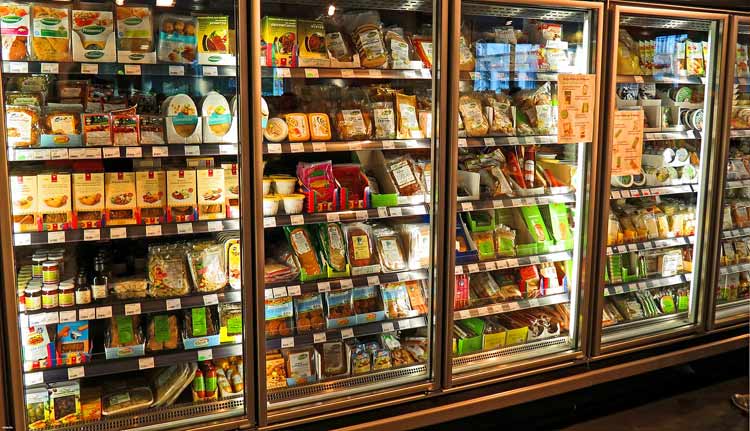 While it is good that foods are overcrowded inside your fridge (it means overabundance, of course!), it is important to note that it can be harmful to your health too. One good reason for not overcrowding food in the refrigerator is to allow cold air to circulate and maintain the temperature inside. When the temperature is not maintained, some food may spoil easier. In addition to this, it is very hard to distinguish fresh food from what is rotten if the refrigerator is overcrowded. On the other hand, it is also not a good practice to keep the fridge empty either. A nearly empty fridge requires more power to stay cold than a full one.
While it is good that foods are overcrowded inside your fridge (it means overabundance, of course!), it is important to note that it can be harmful to your health too. One good reason for not overcrowding food in the refrigerator is to allow cold air to circulate and maintain the temperature inside. When the temperature is not maintained, some food may spoil easier. In addition to this, it is very hard to distinguish fresh food from what is rotten if the refrigerator is overcrowded. On the other hand, it is also not a good practice to keep the fridge empty either. A nearly empty fridge requires more power to stay cold than a full one.
References
– Flora Oluwafemi, Sarah Akpoguma, Taiwo Oladiran and Adelodun Kolapo. “Microbiological Quality of Household Refrigerators in Three Cities South-West of Nigeria.” Journal of Microbial & Biochemical Technology, 2015: 206-209.
Mixing Fruits & Vegetables In The Same Location
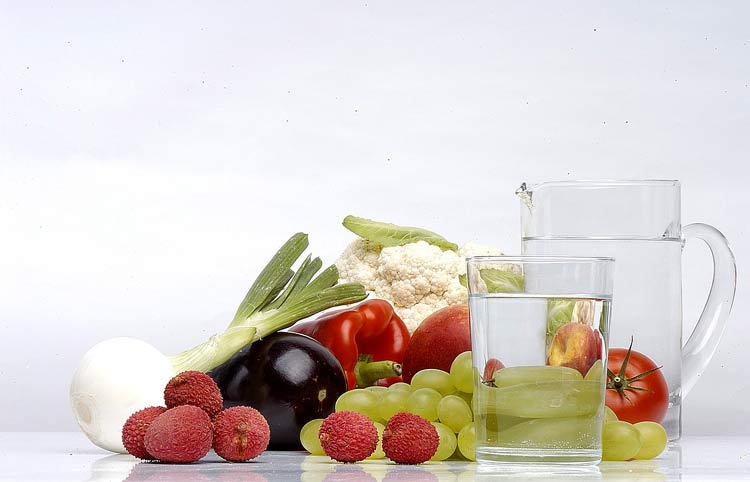 All fruits and vegetables must be stored in the refrigerator once they are cut or peeled. However, a study suggested that mixing fruits and vegetables inside the refrigerator is not a good habit. Fruits produce a certain gas called ethylene, which is responsible for their further ripening. This gas is however not good for vegetables since it enhances their spoilage. Occasionally, fresh fruits and vegetables can become contaminated with harmful bacteria or viruses, which are also known as pathogens. Examples of pathogens include Salmonella, E. coli and Hepatitis A. Hence, it is always best to wash fruits and vegetables before consuming them.
All fruits and vegetables must be stored in the refrigerator once they are cut or peeled. However, a study suggested that mixing fruits and vegetables inside the refrigerator is not a good habit. Fruits produce a certain gas called ethylene, which is responsible for their further ripening. This gas is however not good for vegetables since it enhances their spoilage. Occasionally, fresh fruits and vegetables can become contaminated with harmful bacteria or viruses, which are also known as pathogens. Examples of pathogens include Salmonella, E. coli and Hepatitis A. Hence, it is always best to wash fruits and vegetables before consuming them.
References
– Scot, Peggy Van Laanen and Amanda. “Safe Handling of Fresh Fruits and Vegetables.” Texas Cooperative Extension, 2016.
When The Temperature Is Not Cold Enough
 Bacteria grow most rapidly in the range of temperatures between 40 degrees and 140 degrees Fahrenheit, doubling in number in as little as 20 minutes. This range of temperatures is often called the “Danger Zone“. Freezing keeps food safe by slowing the movement of molecules, causing bacteria to enter a dormant or inactive stage. According to a study published in the Chicago Tribune, the temperature in a refrigerator should be at 40 degrees Fahrenheit or below, and the freezer at 0 degrees Fahrenheit or below . A refrigerator that is not cold enough is not good because it puts the risks of spoilage.
Bacteria grow most rapidly in the range of temperatures between 40 degrees and 140 degrees Fahrenheit, doubling in number in as little as 20 minutes. This range of temperatures is often called the “Danger Zone“. Freezing keeps food safe by slowing the movement of molecules, causing bacteria to enter a dormant or inactive stage. According to a study published in the Chicago Tribune, the temperature in a refrigerator should be at 40 degrees Fahrenheit or below, and the freezer at 0 degrees Fahrenheit or below . A refrigerator that is not cold enough is not good because it puts the risks of spoilage.
References
– United States Department of Agriculture. “How Temperatures Affect Food.” Food Safety Information, 2011.
– Chicago Tribune. And Some Fridge/Freezer Tips. 2016. Link
Not Tossing Away Old Food
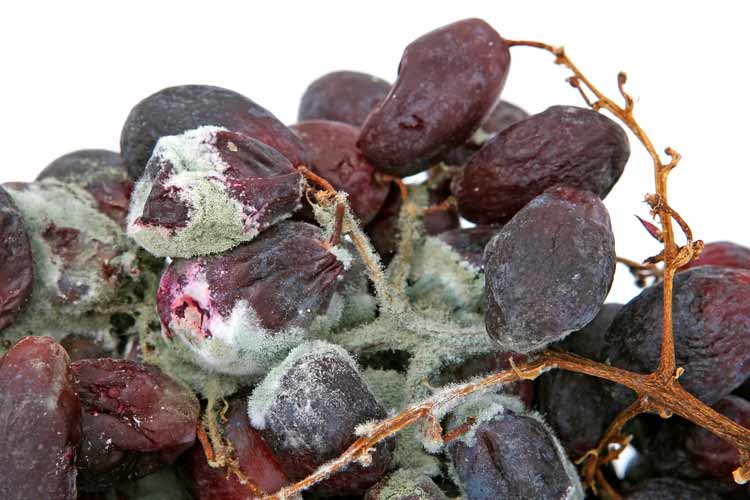 Whether it be fruits, vegetables, or just any food from the fridge, it is always important to know when they can be consumed at their best. Aside from the purpose of edibility and pleasure, the practice of consuming old food can lead to food poisoning. Like any other living organisms, bacteria grow and multiply through time. Thus despite being in a cold temperature, the longer the food stays inside the fridge, the more bacteria can invade and grow in it. Old fruits and vegetables have increased probability of bacterial contaminants according to a study published in International Journal of Hygiene and Environmental Health.
Whether it be fruits, vegetables, or just any food from the fridge, it is always important to know when they can be consumed at their best. Aside from the purpose of edibility and pleasure, the practice of consuming old food can lead to food poisoning. Like any other living organisms, bacteria grow and multiply through time. Thus despite being in a cold temperature, the longer the food stays inside the fridge, the more bacteria can invade and grow in it. Old fruits and vegetables have increased probability of bacterial contaminants according to a study published in International Journal of Hygiene and Environmental Health.
References
– Viswanathan, P., and R. Kaur. “Prevalence and growth of pathogens on salad vegetables, fruits and sprouts.” Int J Hyg Environ Health, 2001: 205-213.
Not Washing Foods From The Fridge
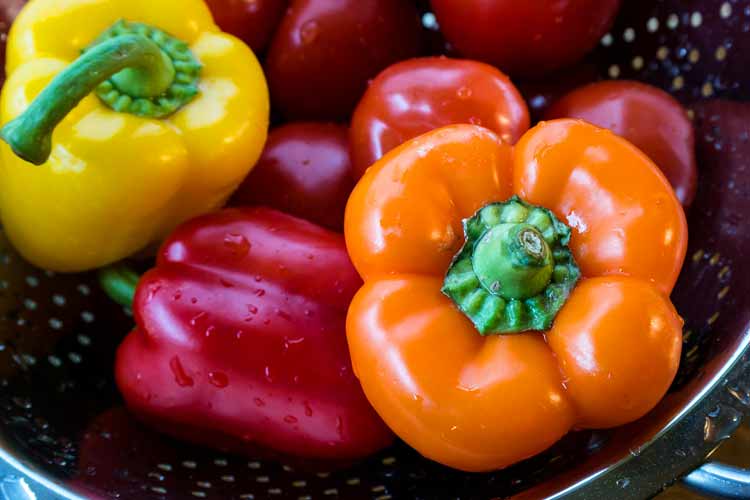 Some harmful bacteria may already be present in foods even before they are put in the fridge. Hence, it is always advised by health professionals to wash foods before consuming them. According to a study by Abdul-Raouf and his colleagues (1993), bacteria like E. coli , Salmonella, and Shigella, which are largely linked to food poisoning in humans, may be present in raw salad vegetables despite being subjected to processing conditions. Aside from that, chemicals like pesticides that contaminate food might be present when foods are unwashed.
Some harmful bacteria may already be present in foods even before they are put in the fridge. Hence, it is always advised by health professionals to wash foods before consuming them. According to a study by Abdul-Raouf and his colleagues (1993), bacteria like E. coli , Salmonella, and Shigella, which are largely linked to food poisoning in humans, may be present in raw salad vegetables despite being subjected to processing conditions. Aside from that, chemicals like pesticides that contaminate food might be present when foods are unwashed.
References
– Abdul-Raouf, U.M., L.R. Beuchat, and M.S. Ammar. “Survival and growth of Escherichia coli O157:H7 on salad vegetables.” Appl Environ Microbiol., 1993: 1999-2006.
Improper Storing of Milk
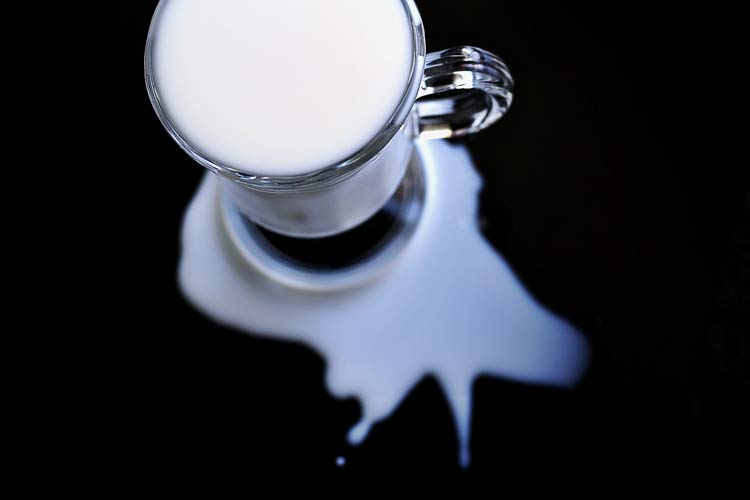 Milk is an important part of many people’s diet. It is a complete food which contains water, proteins, fats, and vitamins and minerals. However, it is also due to this mixture of nutrients and a pH of around 7 that makes it an ideal growth material for many microorganisms. When exposed to air, bacteria can easily get in contact with milk and hasten its spoilage. Spoiled milk is a type of food poisoning which can cause vomiting, diarrhea and abdominal pain. A properly refrigerated, milk can withstand about two week’s storage period. As the product is allowed to warm, the bacteria grow more rapidly. The cooler milk is kept above 32 degrees Fahrenheit, the longer it lasts, and the safer it is.
Milk is an important part of many people’s diet. It is a complete food which contains water, proteins, fats, and vitamins and minerals. However, it is also due to this mixture of nutrients and a pH of around 7 that makes it an ideal growth material for many microorganisms. When exposed to air, bacteria can easily get in contact with milk and hasten its spoilage. Spoiled milk is a type of food poisoning which can cause vomiting, diarrhea and abdominal pain. A properly refrigerated, milk can withstand about two week’s storage period. As the product is allowed to warm, the bacteria grow more rapidly. The cooler milk is kept above 32 degrees Fahrenheit, the longer it lasts, and the safer it is.
References
– Chow, Cheryl. “Bacteria in Spoiled milk.” Food Preservation, 2011.
Not Cleaning It At All
 We all know that cleaning the fridge is time consuming. According to the Journal of Microbial & Biochemical Technology, improper storage of foods such as milk, eggs, raw meat, poultry and fish can make the refrigerator to be contaminated with psychrophilic bacteria. When the refrigerator is not in a clean state, it creates an enabling habitat for these bacteria and will contaminate the foods that are stored. These bacteria will then be responsible for vomiting, diarrhea and even food poisoning. The best way to prevent this? Clean your fridge once in a while. It is always a healthy habit to go through your fridge once a week and transferring old food to the garbage can.
We all know that cleaning the fridge is time consuming. According to the Journal of Microbial & Biochemical Technology, improper storage of foods such as milk, eggs, raw meat, poultry and fish can make the refrigerator to be contaminated with psychrophilic bacteria. When the refrigerator is not in a clean state, it creates an enabling habitat for these bacteria and will contaminate the foods that are stored. These bacteria will then be responsible for vomiting, diarrhea and even food poisoning. The best way to prevent this? Clean your fridge once in a while. It is always a healthy habit to go through your fridge once a week and transferring old food to the garbage can.
References
– Flora Oluwafemi, Sarah Akpoguma, Taiwo Oladiran and Adelodun Kolapo. “Microbiological Quality of Household Refrigerators in Three Cities South-West of Nigeria.” Journal of Microbial & Biochemical Technology, 2015: 206-209.
– McQuillan, Susan. Is your refrigerator making you sick? . 2016. Link.
Which of these practices are you most guilty of? Share them below!













